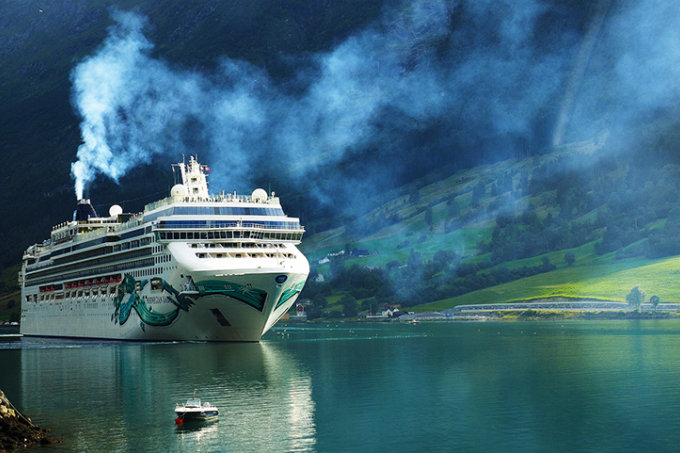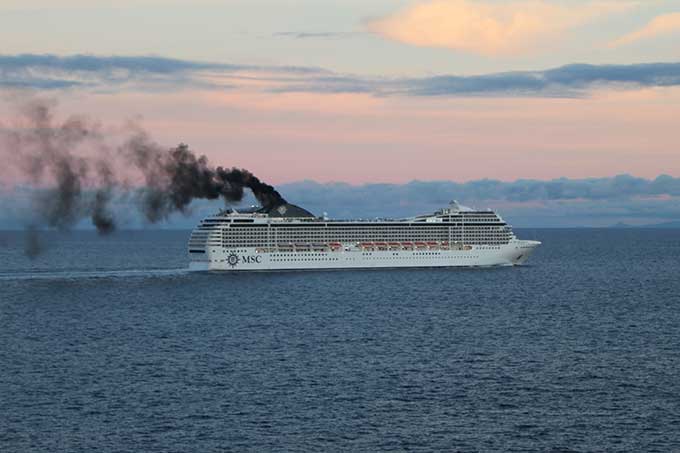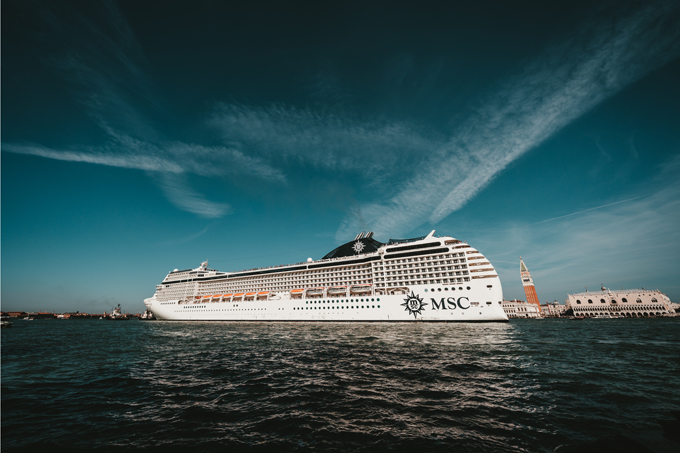NABU Cruise Ranking 2024
Where do shipping companies stand in terms of climate and environmental protection?
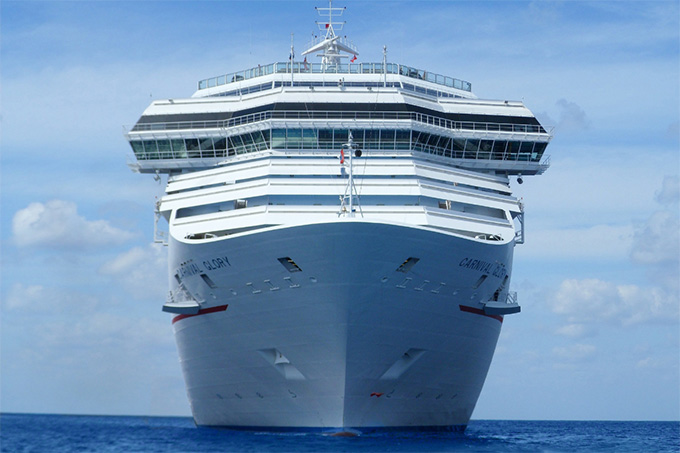
Cruise ship - Copyright: pixabay/ed2456-680x453
Even the front-runners in this year's ranking do not offer a cruise that does not harm the environment and climate. The climate and environment continue to suffer from the use of fossil fuels. The greenhouse gases carbon dioxide and methane are fueling climate change. Sulphur, nitrogen oxides and soot not only pollute the environment, but also the health of people along the coasts.
Commendable: fuel consumption is significantly reduced
However, some companies are showing what the future of cruises could look like. Fuel-saving measures are currently having the fastest impact: they are already available to all shipping companies, can be applied fleet-wide within a short time and offer the potential to save more than half of the fuel.
The frontrunners can distinguish themselves through a variety of measures: Batteries, energy-saving designs, slower speed, and optimization of technology from hull to propeller efficiently reduces the need for fossil fuels. Another key factor is the use of shore power, which makes it possible to completely dispense with engines during berthing times. In many places, this is currently not being utilized due to a lack of supply. Harbor cities such as Hamburg, Kiel and Rostock are leading the way, having installed suitable systems at an early stage. The reduction of exhaust emissions in the harbors benefits both the climate and all residents.
There is also movement in the lower ranks. None of the companies still allow themselves to ignore climate and environmental issues. However, the number of measures to reduce emissions is significantly lower, as is the use of shore-side electricity. Heavy fuel oil, the dirtiest of all fuels, continues to be widely used, even though it not only pollutes the climate, but also the environment and the air.
The challenge: dependency on fossil fuels
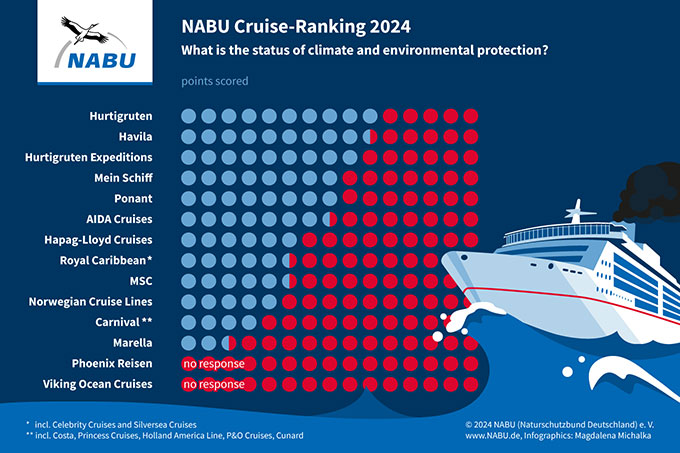
NABU Cruise Ship Ranking 2024 (click to enlarge) - graphic: Magdalena Michalka
The choice of fuel is still central and remains difficult to resolve. LNG leads to considerable improvements in air quality, as air pollutants are reduced. However, the methane that escapes during combustion is a real climate killer, having 80 times the global warming potential of carbon dioxide in the short term. An LNG cruise is sometimes more harmful to the climate than a cruise with diesel. Advertising LNG as a green solution is misleading.
Biofuels are not unproblematic either. Palm oil or other crops do not belong in the tanks of ships. Even waste-based biofuels depend on raw material from a material cycle where it in effect has to be replaced. This results in new hazards for the environment such as changes in land use and deforestation. There is simply not enough sustainable biomass or residual materials available to make a significant contribution to the decarbonization of shipping.
Climate neutrality target a long way off
Overall, cruise companies should focus on renewable fuels of non-biological origin. Fuels based on green hydrogen such as methanol and ammonia are emerging as clear favorites. TUI Cruises is setting itself apart from the competition here with the launch of the newbuild "Mein Schiff 7", as it will be able to run on methanol in future. In addition to efficiency, this focus on climate-neutral fuels is the key step that needs to be implemented across the fleet.
Unfortunately, the goal of climate neutrality is still a long way off. Especially in the lower half of the ranking, NABU does not see any ambitious ambitions to operate the entire fleet in a climate-neutral manner. Germany itself has enshrined the goal of greenhouse gas neutrality by 2045 in its Climate Protection Act. Nevertheless, eight of the participating cruise companies state that they do not want to be climate-neutral until 2050. Nowadays, companies operating in Germany can no longer afford to lag behind the national targets and should improve their own strategy in view of the continuing advance of climate change.
Ranking Details (German language site)
Here you will find a detailed breakdown of the aspects evaluated in the ranking data.
Ranking BreakdownDownload
rankings of the past years
Rising greenhouse gas emissions and heavy air pollutions remain the gravest problems of the cruise ship industry. NABU's annual cruise ship ranking, presented on 28 June in Hamburg, delivers renewed evidence that change is needed. But hope is on the horizon. more →
Environmental and climate protection are still not in the focus of companies. This is the result of the NABU cruise ship ranking 2022, which surveyed the largest providers on the European market about their climate protection measures. more →
The majority of the cruise industry is far from meeting the requirements of the Paris Agreement on Climate Change. That is the result of the NABU cruise ranking 2020 that questioned the 18 largest providers on the European market. more →

